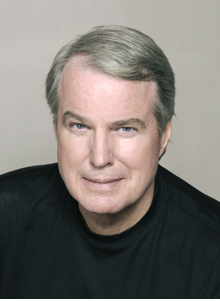

WHAT'S REALLY IMPORTANT
The faith or religion of many individuals plays a major role in their lives, significantly influencing their behavior and values. These people believe there is some form of “higher power” who may comfort and guide them in times of adversity and to whom they owe thanks for all they have received. Their faith also acts to comfort them in times of family loss or personal tragedy.
If you are one of these individuals, I believe it is essential that your faith espouses acceptance and tolerance of all people including those who practise other religions or none at all. The strongest communities are those where people of different faiths, cultures, races and ethnic backgrounds can freely live and interact together harmoniously.
Religious faith often plays a highly positive role in maintaining effective communities and in serving as a source of linkage between generations. It also lends some meaning to life’s major events, such as birth, maturing, marriage, becoming parents and death. Unfortunately, religious faith is also used by some groups as justification for stifling basic freedoms, suppressing the rights of women and denying access to secular education. This is especially the case with the fundamentalist movements of Christianity, Judaism and Islam which all appear to be based on exploiting the fears and insecurities of individuals who feel threatened by the changing “modern world”. These religious extremists distort their faith to create a God that embodies all their fears, hatreds and prejudices in a destructive, authoritarian and dogmatic manner.
As former British Prime Minister Tony Blair stated: “The single most important thing for people of one faith is to know about the others. The more you know and the less the ignorance, the less the fear of the other, and it’s often the fear that creates problems.”
In a June 2013 New York Times column, James Carroll extolled the recently appointed Pope Francis for taking the following stance:
Francis is pulling the [Catholic] church away from a dangerous position; any theology that divides humanity into those who are saved and those who are not – between those who can do good and those who cannot – is a violent theology. “This ‘closing off’ that imagines those outside … cannot do good,” the pope said, “is a wall that leads to war and also to what some people throughout history have conceived of: killing in the name of God. … To say that you can kill in the name of God is blasphemy.” Faith in God, the pope reminds us here, is no guarantee of morality.
Obviously, one’s spiritual beliefs are a highly personal matter. Some people function quite well as agnostics, uncertain as to the existence of a God, and some as atheists, denying that any such God exists. Many other individuals have a strong spiritual faith but do not associate themselves with any form of organized religion.
The Polish poet Czeslaw Milosz wrote of faith in a 1985 poem* under that title:
Faith is in you whenever you look
At a dewdrop or a floating leaf
And know that they are because they have to be.
Even if you close your eyes and dream up things
The world will remain as it has always been
And the leaf will be carried by the waters of the river.
At a dewdrop or a floating leaf
And know that they are because they have to be.
Even if you close your eyes and dream up things
The world will remain as it has always been
And the leaf will be carried by the waters of the river.
Historically, religious faith has often been the catalyst for bringing about ethnic strife and warfare in many parts of the world. There is no justification for this continuing to be the case in the future. Your faith should act as a positive civil force for the well-being of both yourself and the world around you. Reject any faith that promotes intolerance, hatred, the extermination of non-believers and the denial of basic human rights
D.H. Lawrence said, “It is a fine thing to establish one’s own religion in one’s heart, not be dependent on tradition and secondhand ideals. Life will seem to you, later, not a lesser, but a greater thing.” Regardless of how you practise your faith, having some form of spiritual belief is a definite asset in the lives of most of us.
I personally believe in the existence of some form of higher power, a “God”, in our lives. I say prayers on a regular basis, especially to express thanks for what I and my family have received and to request God to bless, watch over, guide and protect my family, friends and myself. This is part of my way of not taking everything for granted.
CONTENTS
- The Right Mind-Set
- Follow Your Passion
- Healthy Relationships
Relationship Boosters
Relationship Blockers
Personal Communications - Friends
Lasting Friendships - Couples
Wanting to be a Couple
Dating
Online Dating
Dead-End Relationships - Marriage
Achieving Happy Marriages
Weddings - Family
Children
Teenagers
- Ethics
- “Success”
- Your Mental and Physical Wellness Nutrition
- Keep Financially Fit
- Faith
- Dare to Be an Independent Thinker
- Become an Interested Individual
Internet News
Read Books
Education Smarts - Holidays
- Giving Back
Overweight
Sleep
Doctor Recommendations
Medical and Health Info
Reading and Texting While Walking
